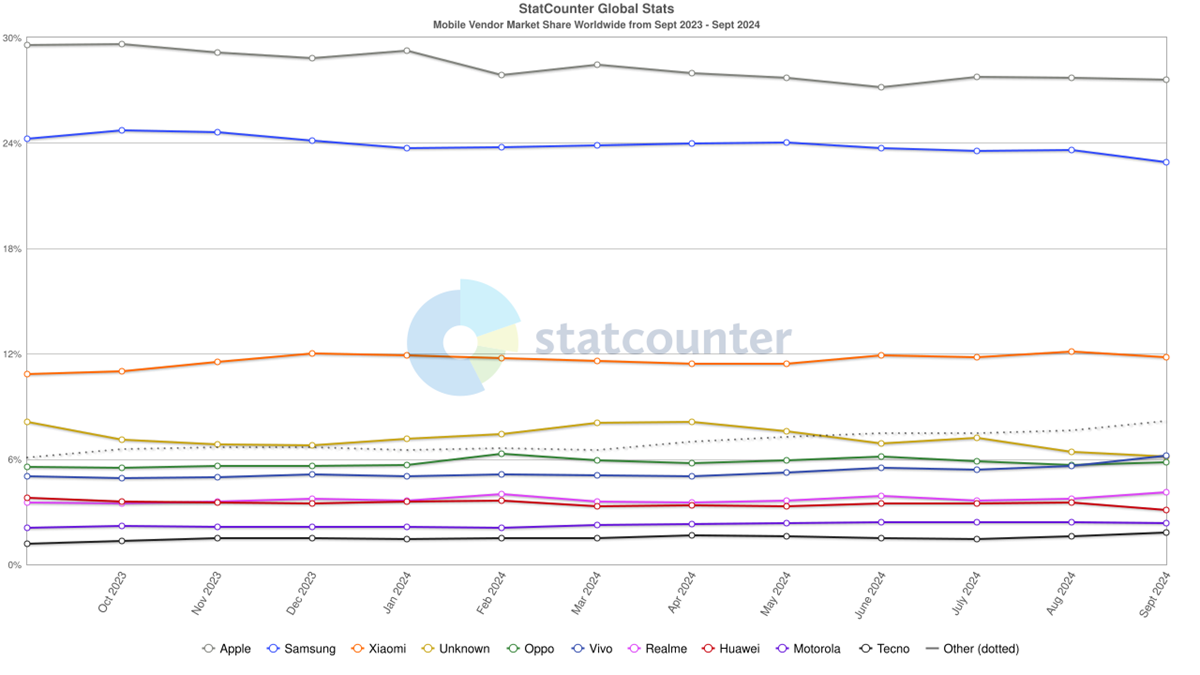Google has been ordered to open up its Play Store for third-parties. This is the second defeat for the Mountain View company this year, after it was found guilty of having an illegal search engine monopoly.
Epic Games dragged Google to the court in an antitrust case in 2020, accusing it of unfair app store practices. In case you are unaware, both Google and Apple charge up to 30% as commission fees for transactions made via their app store.
Google lost the lawsuit against Epic Games in December 2023, when a jury deemed Google to have a monopoly on Android. The company appealed against the ruling, but things didn't go its way. CNBC reports that Judge James Donato of the U.S. District Court of California has ordered Google to open up the Play store. Here are the changes that the company will have to comply with for the next three years.
- The ruling restricts Google from making anti-competitive deals with rival app stores, i.e. it cannot offer third-party app stores any compensation such as paying a fee to launch exclusively on Google Play, or indulge in revenue sharing for not competing with the Play Store, or pay companies to preinstall Google Play on new devices.
- That's not all, it also prevents Google from forcing app developers to use Google Play Billing, or to prevent developers from informing users about cheaper digital goods that are available on their website.
- Third-party app stores will be able to access Google Play Store's collection of apps, and Google has to allow third-party app stores to be hosted on the Play Store.
Epic Games and Google will form a three-person committee to review any technical issues related to Google's compliance with the ruling.
Tim Sweeney, the CEO of Epic Games, wasted no time in celebrating the decision, saying that "all app developers, store makers, carriers, and manufacturers have 3 years to build a vibrant and competitive Android ecosystem with such critical mass that Google can’t stop it." This could mean that F-Droid may be available directly via the Play Store, and so could Amazon's App Store, and Epic Games' mobile app store. On the other hand, this may lead to companies hosting their apps on an exclusive app store. Imagine downloading a Microsoft Store to download Outlook, OneDrive, etc.
Google to appeal the Epic Games verdict
Google says it will appeal the ruling, big surprise. This could cost the company several millions of dollars. It argues that the changes (which are mentioned above), could put the consumer's privacy and security at risk. Hey, that's not fair! That's Apple's excuse, why don't you come up with something original? Google also pointed that developers would have a harder time promoting their apps. Yes, it would be difficult to display ads for apps that have exorbitant monthly subscriptions, when free and open source apps that offer the exact same features exist. Think about what a true, open market can benefit users.
The statement published by Google says that this verdict would also reduce competition on devices. The Search giant argues that "the decision rests on a flawed finding that Android is a market in itself." The company claims that the verdict missed the obvious fact that Apple and Android compete with each other in the same market, and that Android and iPhones are sold side-by-side in a lot of stores, and people choose what device to buy based on the price, quality and security.

I'm going to throw this here for reference. According to Statcounter, Apple sits at the top spot with 57.31% user share in the U.S., while Samsung has a 23.27% market share. Google Pixel devices only have a miserly 5.09% share. The point is 42.69% of smartphone users in the U.S. have an Android phone.
This is in sharp contrast with the global stats, where Samsung has a 22.9% share in the mobile market, just behind Apple 27.61%, the rest of the shares (over 50%) are spread across other Android OEMs. This tells us that the Android market accounts for nearly 72% of the world's smartphone industry.

Apple should not be given a free pass, either. Both companies have been burdening developers with exorbitant commission fees. I just wanted to point out that Google's argument is weak, and sounds desperate.
Google says that Epic Games has distributed Fortnite app via the Samsung Galaxy Store and via the Epic Game Store to Android users, and that developers had always enjoyed the freedom to distribute their apps through various stores. It also stated that many Android phones come with two or more app stores pre-installed (As if that is a good thing! That leads to more bloat). Google cited the Samsung Galaxy Store as an example of this. It also pointed out that such options were not available to iPhone users. Point taken, nobody can deny Android is more open when it comes to side-loading apps. So, where did that argument about user security go away now?
Apple was forced to reform its App Store rules, but the verdict was not a win for developers because the company has side-stepped the restrictions by charging a 27% commission fee, even if an app developer used a third-party payment method. Apple also displays warnings to the user about the risks of being taken to a third-party gateway. While Apple may claim it does so to protect users, these banners are said to have a different effect on users, such messages could dissuade them from proceeding with their transaction. This has, unsurprisingly, drawn criticism from developers.
Hopefully, the DoJ's antitrust case versus Apple will bring more changes to how the company operates its app store, and open up APIs in iOS for third-party apps and devices.
What do you think about the verdict?
Thank you for being a Ghacks reader. The post Court orders Google to lift restrictions on Play Store after Epic Games antitrust lawsuit appeared first on gHacks Technology News.


0 Commentaires